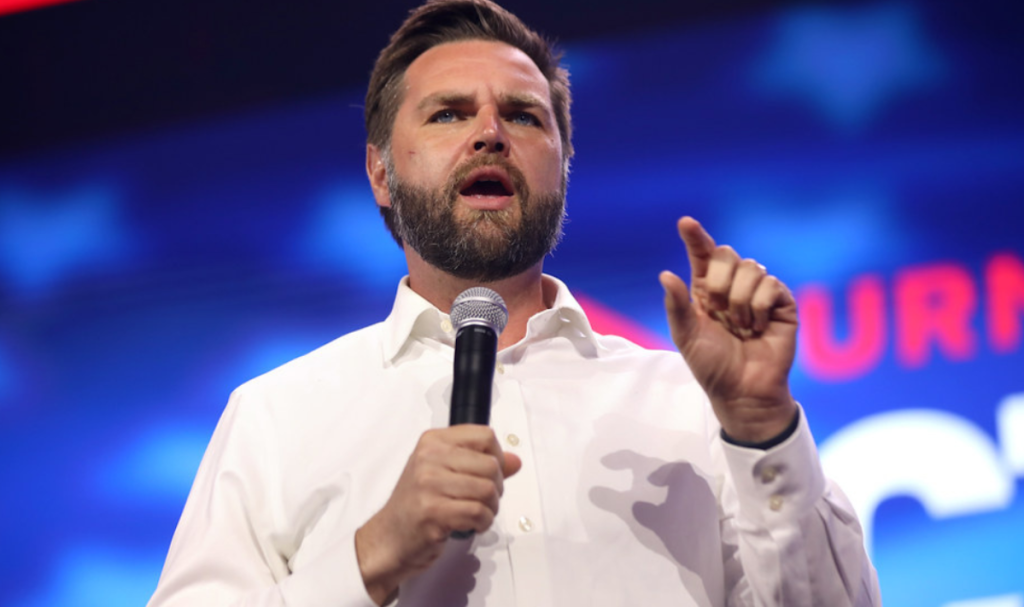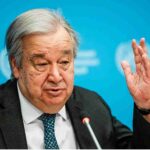
Chinese leader Xi Jinping can’t be happy that his extravagant Third Plenum is competing for headlines with events 7,000 miles away in Beijing.
In Xi’s defense, it’s hard to compete for headlines with an assassination attempt on former U.S. President Donald Trump on the other side of the world. This, coming just over two weeks after Trump’s heated debate with a cognitively challenged President Joe Biden.
But Trump’s choice of JD Vance as his running mate could signal even greater obstruction of Xi’s larger economic plans in the future.
U.S. elections are rarely, if ever, decided by the choice of vice president. And Vance, a first-term senator from Ohio, is more of a mini-me for Trump than a running mate who could broaden the ticket’s appeal. Nevertheless, Vance is an important messaging choice — signaling a bet on Trumpism’s worst instincts.
Betting on the worst instincts of Trumpism
And that could be bad news for hopes that in a second term, Trump could be more transactional with China than confrontational.
Granted, that was always a long shot. But officials in Tokyo have been losing sleep over the prospect of Trump striking a big trade deal with Xi that leaves other major Asian economies out in the cold.
It’s anyone’s guess what having a China hawk like Vance — who is all for revoking Beijing’s “most favored nation” status — whispering in the president’s ear might mean for a Trump 2.0 presidency. At the very least, it suggests that Trump’s 60 percent tariff is just the beginning of broader efforts to Make Trade Wars Great Again.
The collateral damage could be unprecedented. UBS Group AG believes the tax alone would cut China’s annual growth in half — shaving 2.5 percentage points off the gross domestic product of Asia’s largest economy. China grew just 4.7% in the first quarter amid weak retail spending, property investment and new home sales.
That would hit China’s export engine, which has been a particularly potent growth driver this year. “Over time, potentially more exports and production in other economies could help reduce the impact of higher U.S. tariffs, but there is also a risk that other countries could increase tariffs on imports from China,” said UBS economist Wang Tao.
That includes Europe, which has been trying to slow China’s electric vehicle market. Biden has also announced a 100% tariff on Chinese-made electric vehicles. Trump, however, has signaled tariffs of 100% or 200% on all imported cars.
Trump’s choice of Vance over a field of Republicans vying for the VP spot hardly signals an appetite for negotiation. In an interview with Fox News on Tuesday, Vance called Xi’s economy “the biggest threat” to America.
Asked about Vance’s comments, Chinese Foreign Ministry spokesman Lin Jian said Beijing “opposes the US election turning China into an issue.”
In April, Vance argued that Washington’s focus on Ukraine is a dangerous distraction. “To be strong enough to confront the Chinese, we need to focus there, and right now we’re overwhelmed,” noted Vance, who has long advocated “broad tariffs” on Chinese goods.
Vance also advocates bringing back American manufacturing to reduce dependence on Beijing. Of course, Biden advocates this as well. But the Trump-Vance strategy will almost certainly focus more on trying to take jobs away from China than on strengthening the domestic economy or reigniting innovation in the United States.
Wu Xinbo, dean of the Institute of International Studies at Fudan University in Shanghai, told the South China Morning Post that a Trump-Vance White House would be more engaged on the Taiwan issue than the 2017-2021 Trump administration.
“Vance would increase restrictions and technological suppression of China,” Wu said. “He would pay close attention to the Taiwan issue because he believes it is very important to the U.S. economy, especially in terms of chips.”
Again, Trump would seemingly call the shots. But Vance’s influence could make it even harder for Trump to distance himself from “Project 2025,” the 900-page plan that the Heritage Foundation has drawn up for a second Trump term. Vance has close associations with the plan’s authors.
While the plan’s effort to dismantle the government’s civil service gets most of the attention, Project 2025 also advocates abolishing the Federal Reserve and returning the U.S. dollar to a gold standard. These are not comforting ideas for China’s foreign exchange reserve managers, who oversee $770 billion in U.S. Treasury securities.
The upcoming US election is proving to be a real wild card for Xi’s economic direction. In Beijing this week, Xi is meeting with senior Communist Party officials at the much-anticipated Third Plenum. And the world is watching.
“Historically, this event has been crucial in signaling major policy changes and economic reforms in China,” notes Natixis economist Alicia Garcia-Herrero. “This time, market participants and China watchers have a very specific question they hope the Third Plenum can answer: namely, whether sufficient measures will be announced to boost growth and revive the Chinese economy after years of disappointing performance.”
Xi is calling on party leaders to show “unwavering faith and commitment” to his reform priorities, championing “high-quality development.” Global economists are paying particular attention to fiscal reforms, particularly around taxation and government spending, and measures to reduce pressure on local governments by increasing their sources of revenue.
However, the effort comes at a time when many international investment banks are cutting forecasts for China’s growth. And global markets are expressing disappointment that Beijing is not being more aggressive in its stimulus efforts.
“This,” says Garcia-Herrero, “has important consequences for the global economy, namely that China’s demand for foreign goods will remain subdued and that Chinese companies will continue to rely on foreign markets for survival. This points to trade wars continuing to dominate the headlines and perhaps expanding beyond that.”
All eyes are on the signals Xi’s team is sending to foreign investors. Kelvin Wong, an analyst at foreign exchange brokerage Oanda, notes that “given that property policies are one of the key areas of focus at the meeting, the continued slowdown remains the biggest threat to the economy given its significant effect on wealth.”
Policymakers, says Wong, “are now walking a tightrope to defuse the inherent risk in the housing market due to the last decade of unproductive investment initiatives in real estate development to boost economic growth, but they are also aware that a further slowdown in property prices could lead to a deflationary spiral.”
So far, Wong adds, the $41 billion program announced in May to help state-owned companies buy unsold housing stock from property developers “has done little to boost sentiment in the housing market as housing prices continued to fall in June.”
Wong believes that “the next approach that policymakers may consider during the Third Plenum, given the urgency of reviving the current sluggish state of domestic domestic demand, is to implement more pronounced fiscal stimulus initiatives that can have a direct impact on consumer spending, such as spending vouchers or larger tax rebates, without embarking on quantitative easing measures to add more liquidity to the market, which may lead to yuan depreciation and in turn capital outflows.”
If such direct fiscal stimulus measures are announced, Wong concludes, “China and Hong Kong stock markets could see a short-term boost in sentiment.”
However, many argue that expectations are quite low for political fireworks coming from Beijing this week.
This “four-day meeting of the country’s top governing body could not have come at a better time,” says Harry Murphy Cruise, an economist at Moody’s Analytics. But “while the need for reform is high, it is unlikely to be a particularly exciting event.”
The same cannot be said for risks emanating from Washington. The political polarization behind the insurrection at the Capitol on January 6, 2021, contributed to Fitch Ratings’ decision in August 2023 to revoke Washington’s AAA status. Even if Trump loses in November, there is a zero percent chance he will concede gracefully.
Moody’s Investors Service, which holds Washington’s only remaining AAA rating, points to those risks, as well as conflicts over government funding and raising the debt ceiling, as threats to the U.S. credit outlook.
Trump also has views that are sure to make Asian policymakers very nervous. As a businessman in New York in decades past, Trump was a serial bankrupt. During the 2016 campaign, Trump spooked Wall Street by suggesting a possible default on U.S. debt.
“I would borrow, knowing that if the economy crashed, you could make a deal,” Trump told CNBC when asked about his tax plans. “And if the economy was good, it was good. So, therefore, you can’t lose.”
In 2020, the Washington Post reported that Trump officials, seeking to punish China, had considered canceling debt held by Beijing. With the U.S. debt approaching $35 trillion, it’s not hard to understand how catastrophic this would be.
Still, Trump’s reelection platform and choice of running mate signal that global investors likely haven’t seen the full story yet about where the U.S.-China trade conflicts could take them.
With information from Asia Times
Source: https://www.ocafezinho.com/2024/07/17/o-que-a-china-pensa-sobre-a-escolha-de-jd-vance/

